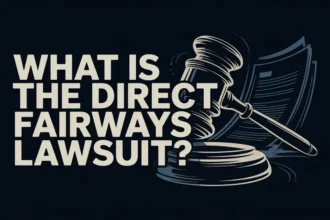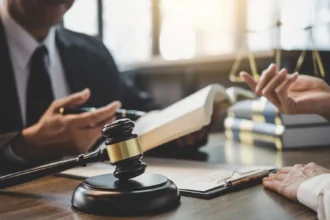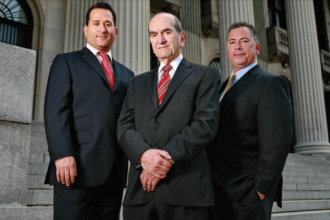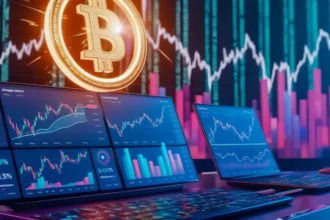In the past, criminal cases were often built on fingerprints, eyewitness accounts, and paper records. But today’s criminal lawyer faces a whole new frontier: digital evidence. From text messages and emails to GPS tracking and security footage, the digital world has become a powerful player in modern investigations.
What is Digital Evidence?
Understanding the Basics
Digital evidence is any information stored or sent digitally that might be used in a court of law. It encompasses data from smartwatches, automobiles, and in certain uncommon situations, refrigerators, in addition to computers and cell phones.
The Evolution of Digital Evidence in Criminal Cases
A Shift in Legal Strategy
Ten years ago, a criminal lawyer might not have given much thought to someone’s Instagram activity. Today, it could be the turning point in a case. Courts now accept digital evidence as a standard part of trial proceedings, and lawyers must be ready to challenge or defend its authenticity and relevance.
Early Days vs. Today
- Then, Investigations focused on physical evidence, like a weapon or a fingerprint.
- Now: Digital breadcrumbs can reveal where someone was, what they said, and even what they were thinking.
Where Digital Evidence Comes From
Smartphones and Tablets
Modern smartphones are treasure troves of information. A criminal lawyer often works with forensic teams to extract messages, photos, call logs, and app usage from these devices. Even deleted data can sometimes be recovered.
Social Media and Messaging Apps
Facebook, Instagram, Snapchat, TikTok, and WhatsApp can all contain useful clues. People often share more online than they realize, and even private messages can be subpoenaed. Tags, timestamps, and GPS data can all strengthen or weaken a case.
Computers and Cloud Storage
Laptops, desktops, and cloud accounts hold documents, emails, downloads, and more. Investigators look at browser history, downloaded files, and login timestamps to create a digital timeline.
Surveillance Cameras
From doorbell cameras to bank security systems, video footage has become a staple in many criminal trials. It can confirm alibis, show suspects, or contradict witness statements.
How Criminal Lawyers Use Digital Evidence
Working with Digital Forensic Teams
A criminal lawyer doesn’t work alone when it comes to digital evidence. They often collaborate with digital forensic experts who analyze devices, recover deleted files, and authenticate timestamps.
Forensic analysts:
- Ensure the evidence is collected legally
- Maintain a chain of custody
- Provide expert testimony in court
Authenticating the Evidence
Lawyers must confirm that the digital evidence is genuine and hasn’t been tampered with. This involves checking metadata, timestamps, and sometimes comparing files across devices.
Using It in Court
Once verified, the evidence is submitted to the court. It might be used to support an alibi, contradict a witness, or even uncover motives. A smart criminal lawyer knows how to present this information clearly and convincingly to a jury.
The Impact of Digital Evidence on Criminal Defense
Shifting the Burden of Proof
In some cases, digital evidence can help exonerate a defendant. For example, GPS data showing a suspect was miles away from the crime scene can be a game-changer.
New Defense Strategies
Criminal lawyers now explore new defense strategies based on digital timelines, online behavior, or communications. The ability to prove—or disprove—a person’s intent or location using digital tools has reshaped the legal landscape.
The Future of Criminal Law and Technology
AI and Predictive Policing
Some police departments now use AI to predict crime hotspots based on historical data. While this raises ethical questions, it also signals a future where criminal lawyers may need to challenge machine-generated evidence.
Deepfakes and Fake Evidence
As technology grows, so do the risks of falsified digital content. Lawyers must stay sharp to detect and challenge altered images, videos, or messages.
Cloud and Cross-Border Challenges
With so much data stored in the cloud, jurisdiction becomes tricky. What happens when a U.S. court needs data from a server in another country? Lawyers will need to navigate these cross-border legal challenges more often.
Conclusion: A New Era for Criminal Lawyers
The rise of digital evidence has reshaped the job of a criminal lawyer. It’s no longer enough to understand statutes and case law—today’s legal professionals must also grasp data extraction, forensic analysis, and cybersecurity.
From unlocking smartphones to decoding digital trails, lawyers now have powerful tools at their fingertips. But with great power comes great responsibility. As digital evidence continues to grow, so will the need for ethical, informed, and tech-savvy legal professionals.
FAQs
- What is considered digital evidence in a criminal case?
Digital evidence includes text messages, social media posts, emails, GPS data, call logs, and surveillance footage—anything stored or transmitted in digital form. - Can deleted data be used in court?
Yes, in many cases, deleted data can be recovered by forensic experts and used as evidence, as long as it was obtained legally. - How do criminal lawyers use digital forensic experts?
Lawyers team up with digital forensic experts to extract, analyze, and authenticate digital evidence, ensuring it’s valid and properly handled. - Are social media posts admissible in court?
Yes, social media content is often used as evidence if it’s relevant to the case. It must be verified for authenticity before being presented in court.

















